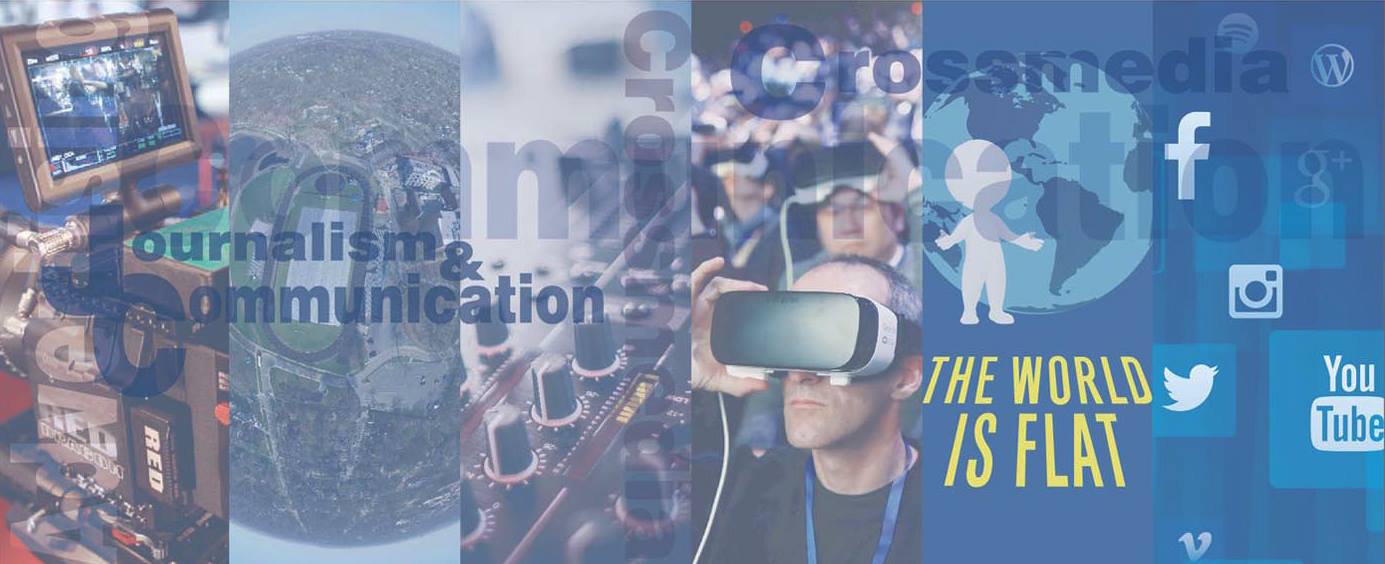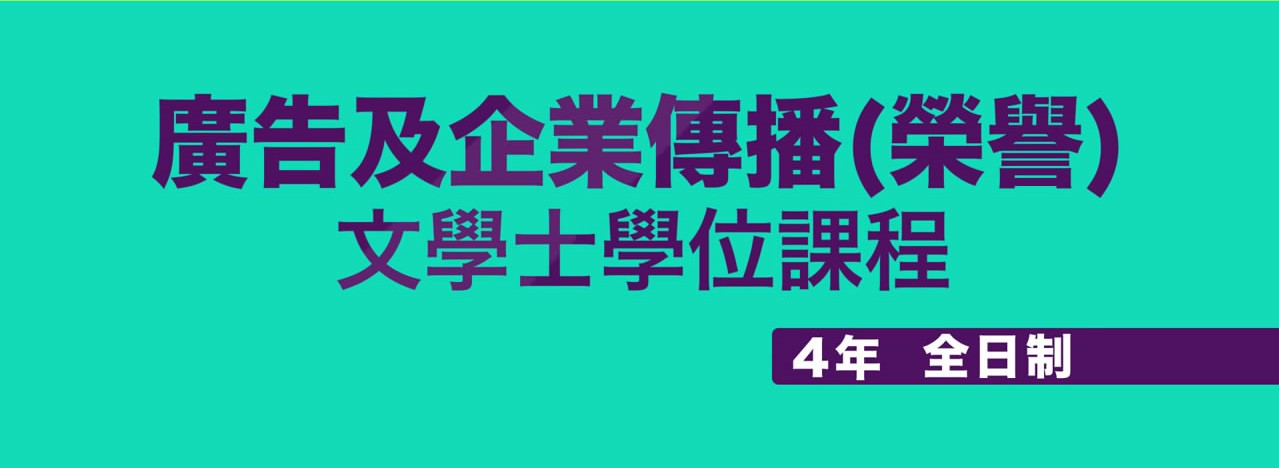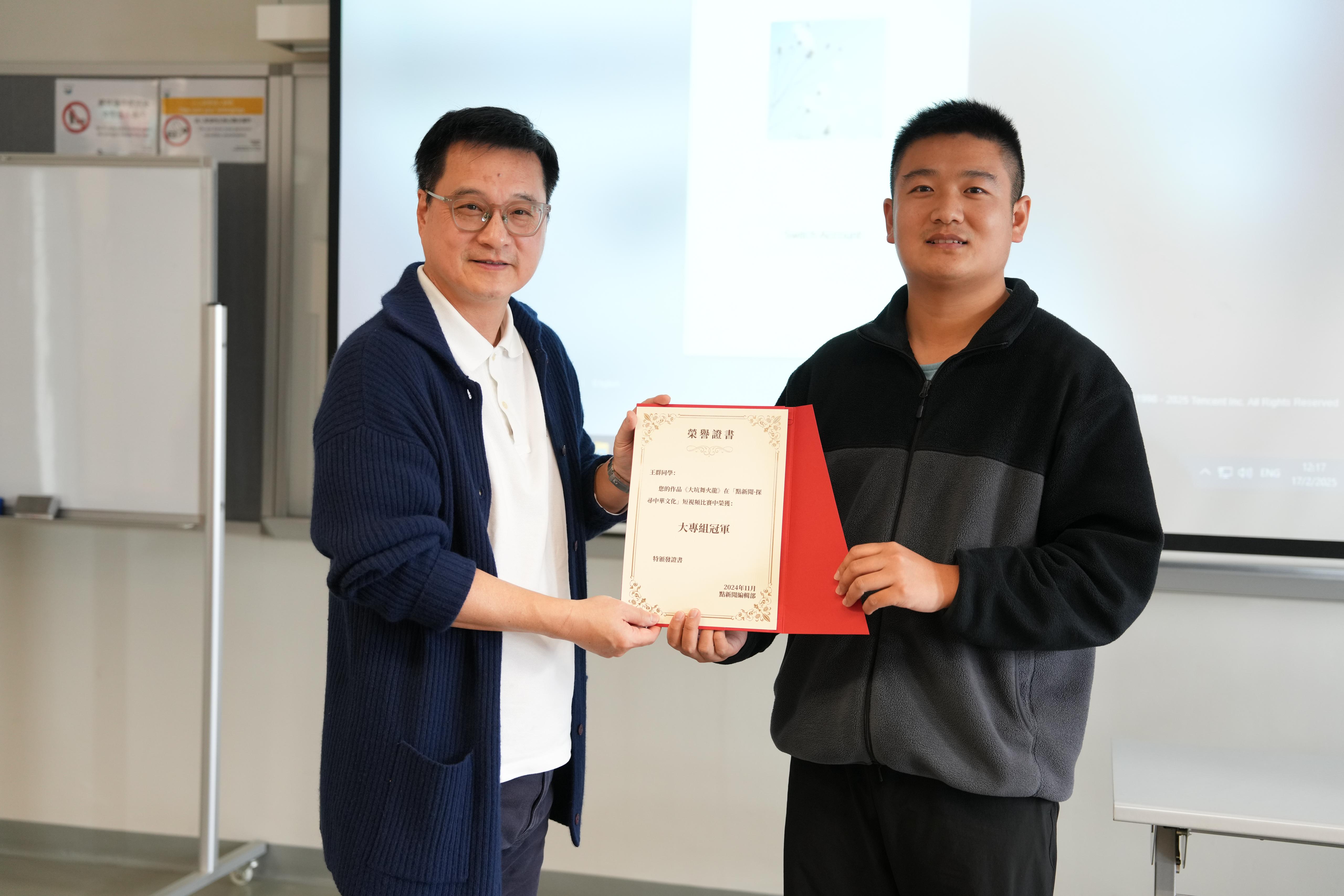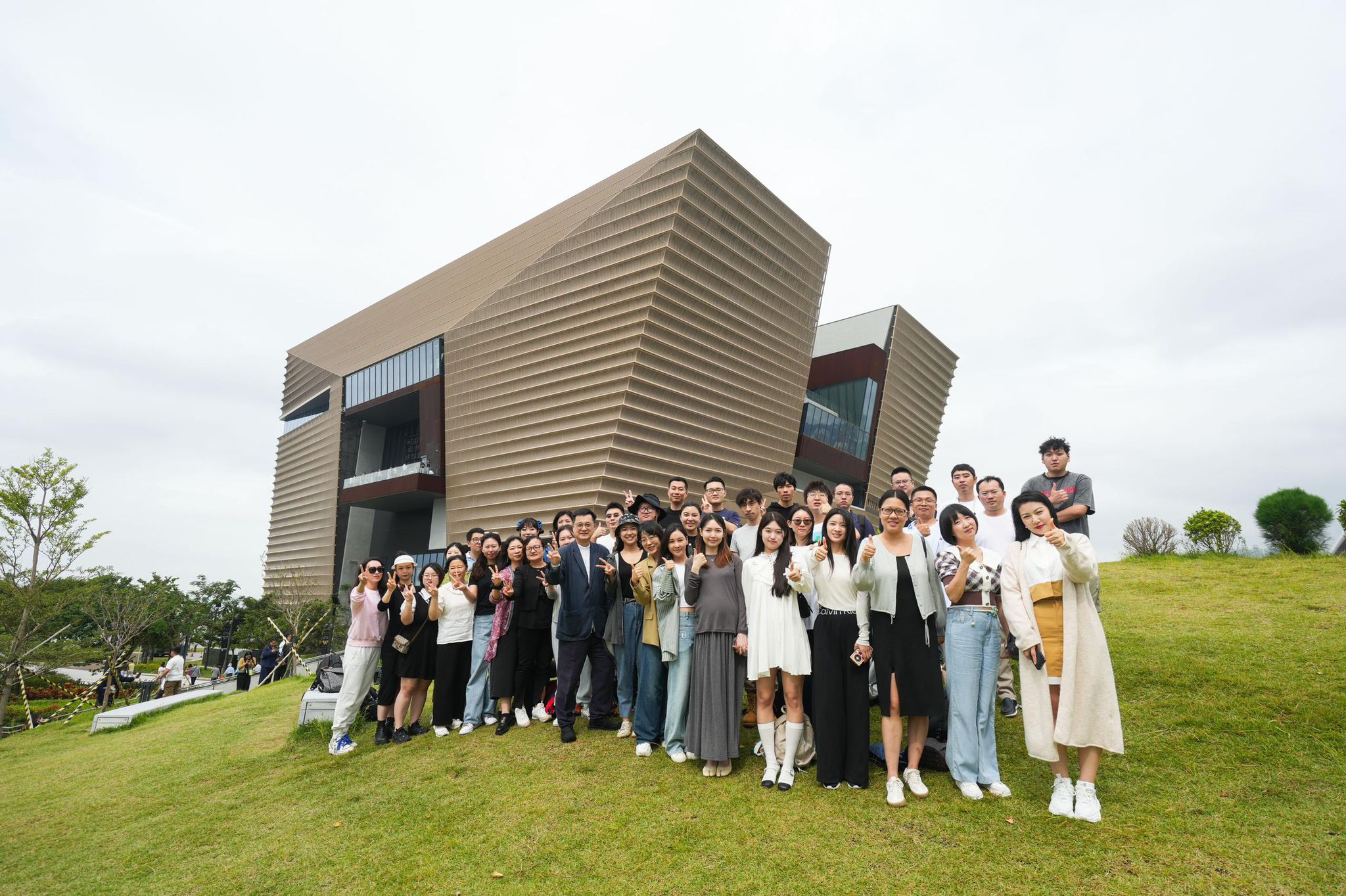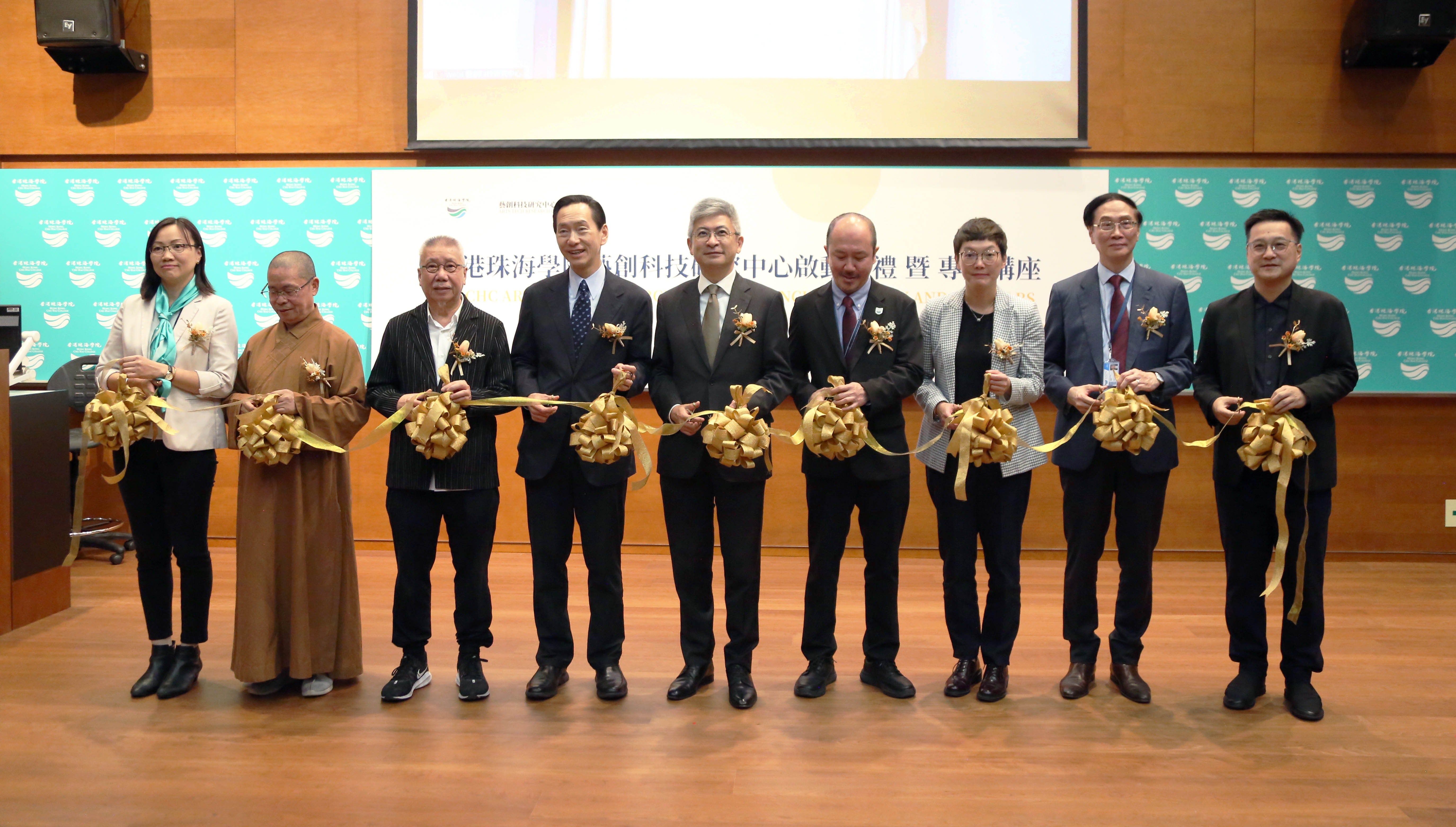Master of Arts in Arts Tech and Digital Communication
Programme Concepts and Features
Programme Concepts and Features
This MA programme is developed with an aim to advancing the development and proliferation of new generation arts. It is by nature an interdisciplinary and cross-boundary postgraduate programme that integrates arts and innovative technology application. The philosophy of the programme is based on the premise of “Art is Communication” through a combination of innovative courses to inspire and train a new generation of talents competent to integrate digital technology into various types of art creation, curation, cross-boundary integration and innovative application. This MA programme is especially suitable for those who are interested in doing research on new media arts or interested in new aesthetics, digital art creation and cross-field application.
Programme Aims
Programme Aims
- To satisfy the societal needs for a new generation of arts and communication professionals able to work out digital solutions with a creative and cross-boundary mind and horizons;
- To enhance the digital competence of young people to tap the opportunity in the rapid socio-economic development of the Greater Bay Area;
- To develop an arts tech hub in the College to provide an interdisciplinary training across academic departments and awake the arts community and general public to experience the impact of various forms of arts creation with new technologies;
- To promote a digital and convergent arts culture in Hong Kong and the Mainland.
Programme Objectives and Outcomes
Programme Objectives and Outcomes
- Identify and interpret the multifaceted and complex interaction of the Chinese and Western arts cultures and identities being affected by the international flows of media contents;
- Apply the latest IT skills necessary for designing and employing arts technologies for cultural and creative production, performing and digital communication;
- Engage in research on traditional arts culture and history in conjunction and convergence with the contemporary Chinese and Western arts developments;
- Exercise the acquired professional expertise, critical thinking and leadership capacity to serve the arts and media industries.
Programme Structure
Programme Structure
The programme consists of 27 credits, of which 18 credits are set for the core courses and 9 credits are set for the elective courses.
| Core course | Credit |
| Technology for Arts and Digital Communication | 3 |
| Comparative Visual Art History and Theory | 3 |
| Research Methods for Arts Tech | 3 |
| Strategic Management for Arts Tech Businesses | 3 |
| Arts Tech Application (Capstone Project) | 6 |
| Total: 5 | Total: 18 |
| Elective course – Choose three | Credit |
| Digital Arts and Aesthetics | 3 |
| Media and Communication in the Greater Bay Area | 3 |
| Digital Storytelling and Media Software Application | 3 |
| Big Data and Analytics | 3 |
| Cross-cultural Management – Regional Context | 3 |
| Contextual Studies: Professional Internship in Arts Tech Institutions | 3 |
| Total: 3 | Total: 9 |
Syllabus Description
| Technology for Arts and Digital Communication | Core |
| Course features: Analyse how digital technology creates innovative forms of art. | |
| This course is to deliver the fundamental and renowned concepts and theories of art creation and curation integrated with digital and communication technologies to lay a solid foundation for the students to apply and practice various forms of arts tech work.
It requires the students to apply the theory of arts tech to do case studies on any kinds of new form of artworks presented in mid-term. Besides, the students are also required to analyse the arts tech endeavour or exploration of an art organization or museum for the final report with in-class presentation. |
|
| Comparative Visual Art History and Theory | Core |
| Course features: Compare the visual art history and the intrinsic art sense under different cultures for an in-depth understanding of the meaning of the art to stimulate innovative ideas. | |
| The design of this course is to widen students’ perspective so as to consolidate their art sense with novel horizons and appraising power. The course will introduce the intrinsic elements and aesthetic approaches of the Oriental and Western visual arts and their traditions for a comparison and scrutiny to evaluate what social, cultural, historical and humanistic factors have fostered a particular form and perspective of visual arts representation. The course will slightly deal with the Chinese, Islamic and Western visual arts histories through which a number of focuses of the comparison of artforms and aesthetic spirits are thus established for the understanding and discourse of the meaning of the art under different cultures. | |
| Research Methods for Arts Tech | Core |
| Course features: Utilization of software to do research on the cross-boundary impact of various digital technologies and apps on art creation and representation. | |
| The design of this course is to inform and deliver operational techniques for the students to design and implement various forms of innovative research on the exploration of arts tech development and its implications for the media and cultural industries, arts perspective and application. The course requires the students to draw up a research plan to look into the impact and further development of new forms of arts creation and presentation made possible by the application of IT, ICT and virtual apps. | |
| Strategic Management for Arts Tech Businesses | Core |
| Course features: How to run a successful arts tech curation and performance with a sound business model. | |
| The design of this course is to introduce and examine how to design and manage to attain a set of strategic goals (vision, mission, and strategic objectives) for arts businesses and performances under the rapidly changing meaning, means and context of arts creation, forms of audience participation and curation in the digital era.
The strategic management process of goal setting, analysis of strategy formation, strategy implementation and strategy monitoring serving as the key deliverables of this course will also deal with issues from budgeting and fundraising, to e-marketing and social networking in relation to the strategic planning of visual arts organizations like theatre, museum, arts centre, arts gallery, etc. |
|
| Arts Tech Application (Capstone Project) | Core |
| Course features: Showcasing what you have learned and putting it into use. | |
| This course is to substantiate students’ development of arts tech concept and application skills through the making of a capstone project. Under which, the students are required to develop an individual arts tech project to apply the creative design and art sense in a configuration that exhibits an immersive effect with a cross-boundary breakthrough.
The course is run in the form of workshop, seminar, brainstorming and solution sessions to assess the progress of the design and the use of digital tools/apps for the configuration of art curation, creation, format and platform for communication. |
|
| Digital Arts and Aesthetics | Elective |
| Course features: Understand the changing artform and its meaning which are not based on the criteria of craftmanship. | |
| As the application of digital tools has alienated the traditional meaning and format of craftmanship and aesthetic concept, blurring if not mixing art boundaries and genres. This course is to examine how the application of digital tools has opened up numerous ways and methods to art creation and communication that revolutionize the meaning of the art even out of the boundary or array of the so-called contemporary arts, and central to all this is the creative configuration of arts with technology.
To explore what digital arts embrace, the course will explore how we can make sense of those seemingly untraditional configurations and creations of artwork followed by an analysis of the meaning and implication of digital artwork. |
|
| Media and Communication in the Greater Bay Area | Elective |
| Course features: Comparative analysis of the characteristics of media and the style of communication in the Greater Bay Area. | |
| This course will focus on comparative media and communication systems in the Greater Bay Area (GBA). It examines the nature of human relations and the characteristic patterns of language and communication in this area with the aim of enhancing students’ awareness of the diverse, pluralistic as well as common development and practice of communication in the GBA.
Perspectives from both Chinese and Western scholars discussing the socio-psychology of the Chinese and the related patterns of language and communication will be utilized to further develop students’ critical and analytical skills within a comparative framework. |
|
| Digital Storytelling and Media Software Application | Elective |
| Course features: Learn and apply the art and techniques of storytelling by using media tools and software. | |
| The objective of the course is to prepare students on how to incorporate technology-enabled narrative (digital storytelling) as an effective means of representation. The students will learn about the contents and components of stories and the storytelling process, through which students will learn how to compose short stories and will gain practical experience in creating various types of stories by using different media tools and apps. | |
| Big Data and Analytics | Elective |
| Course features: Utilization of big data for research and analysis to master the algorithmic implication of correlation, flow direction, induction, etc., for a precise analysis of feedback, trends, differences related to issues such as management, user experience, benefit evaluation, etc. | |
| The course will deliver hands-on skills on the following themes:-
Introduction to Big Data Analytics Big Data Computing: Concepts, Platform, Service, and Tools MapReduce and its open-source implementation of Hadoop Big Data Analytics Algorithms Linked Big Data Analytics Graph Database and Analytics Streaming Big Data Analytics Big Data Visualization Big Data Case Studies in Communication and the media |
|
| Cross-cultural Management – Regional Context | Elective |
| Course features: Scrutiny of management formats, corporate cultures and intercultural conflicts across regions and cultures. | |
| The main objective of this course is to provide students with the knowledge in the field of managing relations arising from the intersection of national and organizational cultures. The main themes of the course are:
– The basis of approaches to the definition of the essence of concept of cross-cultural management, its structural elements, functions, principles and mechanisms of implementation. – Models of organizational and national cultures. – The structure of the international management system. – Corporate culture as an element of cross-cultural management. – “Cross-cultural shock” and strategies to overcome intercultural conflicts. – American business culture: features, functionality, specificity of management. European Regional Culture: Western Europe and Eastern Europe. – The homogeneity of national business cultures in the Eastern model of cross-cultural management. |
|
| Contextual Studies: Professional Internship in Arts Tech Institutions | Elective |
| Course features: A real and combat context of study in an arts tech organization. | |
| This work-study scheme is designed for students who opt for internship or contextual study in art organization, art centre, gallery, museum, theatre, multiproduction firm or any art-related institutions.
Under this scheme, a small group of 2-3 students or just one individual student, depending on the arrangement made, will be attached to any of the above organizations for at least one month working on a full-time basis. |
|
Medium of Instruction
Medium of Instruction
The principal medium of instruction is English for the teaching and assessment of all courses supplemented with Chinese for addressing the professional usage, jargons and concepts. Readings, references and handouts are primarily based on English versions.
Mode of Study
Mode of Study
Full-time: 12 Months (Normal), 24 Months (Maximum)
Part-time: 24 Months (Normal), 48 Months (Maximum) (Local applicants only).
Admissions Requirements
Admissions Requirements
An applicant who wishes to be admitted to this Programme shall hold:
- a Bachelor’s degree (majoring in communication, journalism, art, visual art/communication, computer science, information technology, architectural design, film studies, media production, advertising, cultural studies, performing art, corporate communication, public relations, digital production, photography, design, marketing, etc., would be given priority); or
- an equivalent qualification.
Application Procedures
Applicants should upload the following documents to the Admissions System.
Please bring along the original or a certified copy from the issuing authority of the following documents to your admissions interview for verification:
- One recent passport-size photo;
- Photocopy of Identity Card / Passport;
- A 500-word self-introduction stating why you are interested in this MA programme and could benefit from it;
- Two letters of recommendation, if applicable;
- An official transcript or a certified copy sent directly to the Admissions Unit in a sealed envelope by the issuing university to the following address:
Admissions Unit [MA in Arts Tech and Digital Communication]
E102, Chu Hai College of Higher Education, 80 Castle Peak Road, Castle Peak Bay, Tuen Mun, N.T., Hong Kong
- Photocopy of Degree Certificates^.
^ Applicants with degrees from universities in Mainland China are required to provide:
– a certified copy of Degree Certificate (學位證書) and Graduation Diploma (畢業證書) issued by a central unit (e.g. Registry or equivalent) of your home institution; and
– the latest Online Verification Report of Higher Education Qualification Certificate (教育部學歷證書電子註冊備案表) issued by the CHESICC (學信網) or CDGDC (學位網).
The College may request for an Assessment Report issued by the Hong Kong Council for Accreditation of Academic and Vocational Qualifications (HKCAAVQ) on the level of qualification obtained, if necessary.
- A 500-word self-introduction stating why you are interested in this MA programme and could benefit from it;
- Two letters of recommendation, if applicable;
- Photocopy of English Proficiency Certificate for qualifications obtained from an institution in which the medium of instruction is not in English, if applicable.
Selected applicants will receive an interview invitation by email.
Application Fee
Application Fee
Non-refundable application fee of HK$300 for local applicants or HK$600 for non-local applicants for each programme.
For payment methods, please visit the Finance Office webpage.
Tuition Fee for 2025/26AY
Tuition Fee for 2025/26AY
For Fall Intake, 2025/26 Academic Year:
Local applicants and Non-local applicants
First Round: 1 November 2024 to 24 January 2025
Second Round: 10 February 2025 to 30 May 2025
(The admission will be closed when the enrolment is full)
Application Periods
Application Periods
For Fall Intake, 2025/26 Academic Year:
Local applicants and Non-local applicants
First Round: 1 November 2024 to 24 January 2025
Second Round: 10 February 2025 to 30 May 2025
(The admission will be closed when the enrolment is full)
How to Apply
Graduate Profile
Graduate Profile
Qualification Title: Master of Arts in Arts Tech and Digital Communication
Qualification Type: Master Degree
QF Level: Level 6
Primary Area of Study and Training: Arts, Design and Performing Arts.
Sub-area (Primary Area of Study and Training): Design and Other Creative Industries
Programme Objectives:
- To satisfy the societal needs for a new generation of arts and communication professionals able to work out digital solutions with a creative and cross-boundary mind and horizons;
- To enhance the digital competence of young people to tap the opportunity in the rapid socio-economic development of the Greater Bay Area;
- To develop an arts tech hub in the College to provide an interdisciplinary training across academic departments and awake the arts community and general public to experience the impact of various forms of arts creation with new technologies;
- To promote a digital and convergent arts culture in Hong Kong and the Mainland.
Programme Intended Learning Outcomes:
- Identify and interpret the multifaceted and complex interaction of the Chinese and Western arts cultures and identities being affected by the international flows of media contents;
- Apply the latest IT skills necessary for designing and employing arts technologies for cultural and creative production, performing and digital communication;
- Engage in research on traditional arts culture and history in conjunction and convergence with the contemporary Chinese and Western arts developments;
- Exercise the acquired professional expertise, critical thinking and leadership capacity to serve the arts and media industries.
Education Pathways: Graduates of this Programme can pursue further study via enrolment in research-based programmes (e.g., MPhil or PhD) or taught postgraduate programmes in fine arts, visual design, film, digital arts, and art and design-related areas offered by local and overseas universities.
Employment Pathways: Graduates of this Programme would have the compacity and potential to be employed in the media, art, visual design, cultural and creative industry sectors in Hong Kong and Mainland China as well as being promoted to a senior, supervisory, or managerial position for being able to working out arts tech or digital solutions to business transformation. The followings are the most likely careers that fit what they are trained for:
- Digital Arts Appraiser
- Exhibit Designer
- Museum and Arts Curator
- Audio-Visual Specialist
- Installation Artist
- Museum Digital Specialist
- Arts Tech Artist of Various Art Forms
- Arts Tech Educator
- Arts Tech Designer
- Manager of Visitor Experience
- Producer of Performing Arts
- Event Organizer
- Visual Centre Designer
- Digital Arts and Merging Arts Practitioner
- Crossmedia Arts Designer
- Experimental Art Designer
- Interactive Art Curator
Minimum Admission Requirements
An applicant who wishes to be admitted to this Programme shall hold:
- a Bachelor’s degree; or
- an equivalent qualification.
An applicant seeking admission on the basis of a qualification from a university or institution in which the language of teaching and/or examination is not English, shall satisfy one of the following minimum language requirements:
- a score of 79 in internet-based test or 550 in paper-based of TOEFL; or
- an overall score of 6.0 in IELTS; or
- a minimum level 6 of the College English Test (CET); or
- equivalent.
Operator: Hong Kong Chu Hai College
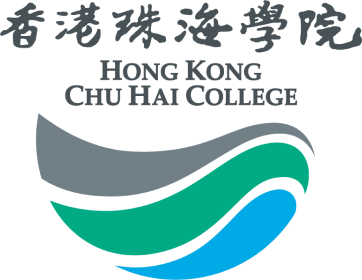
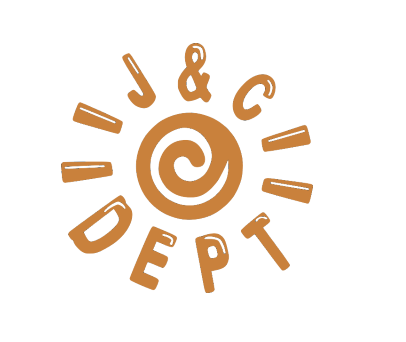



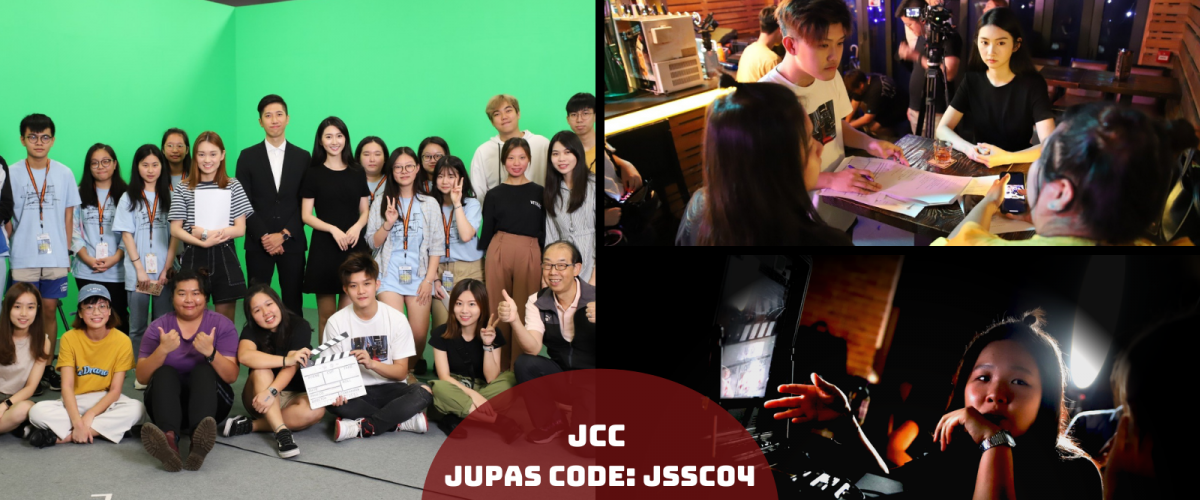
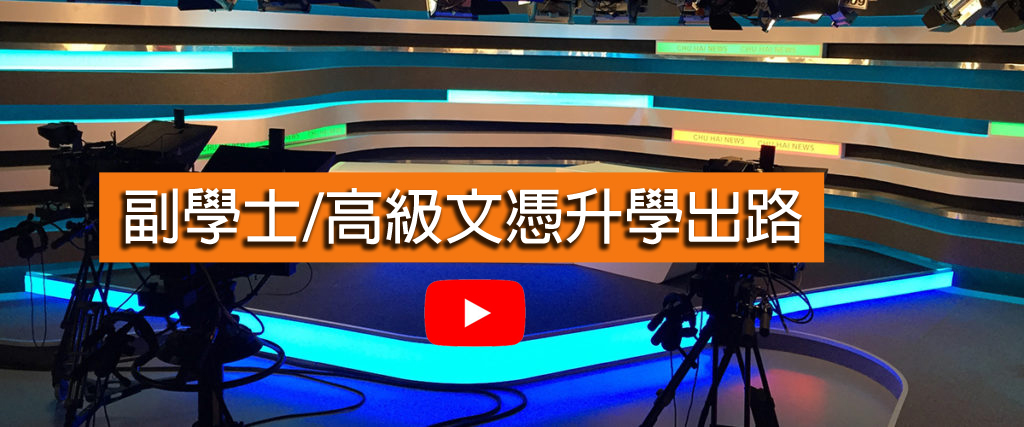
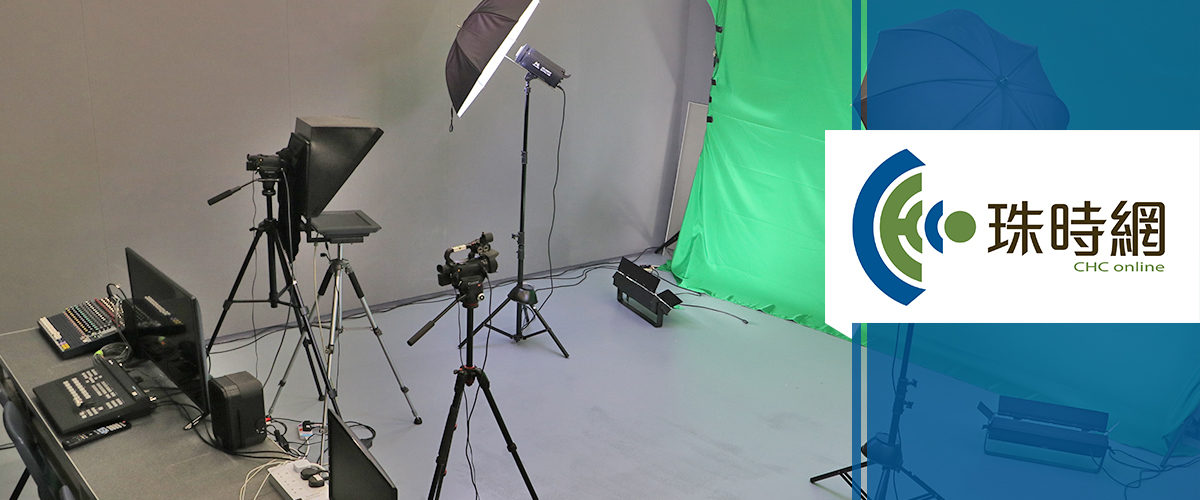
文學士-R1.jpg)
